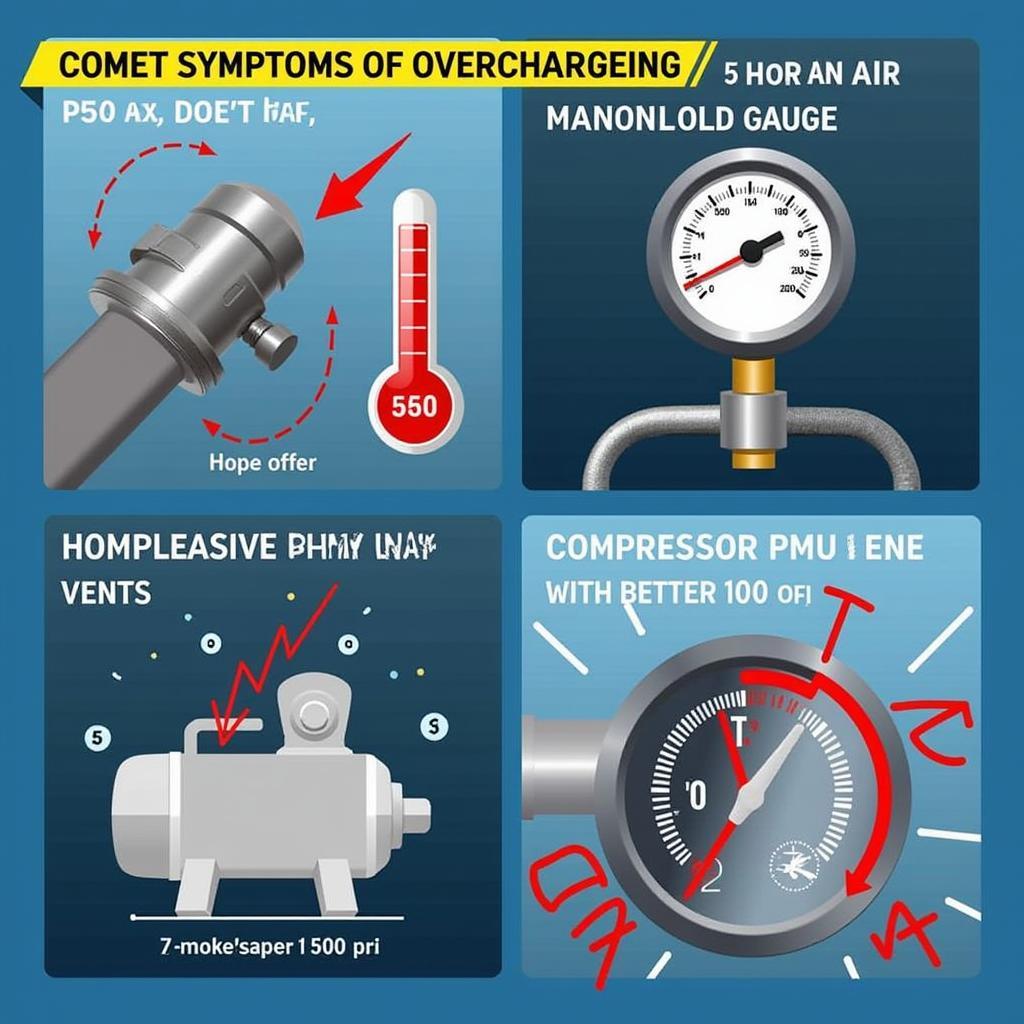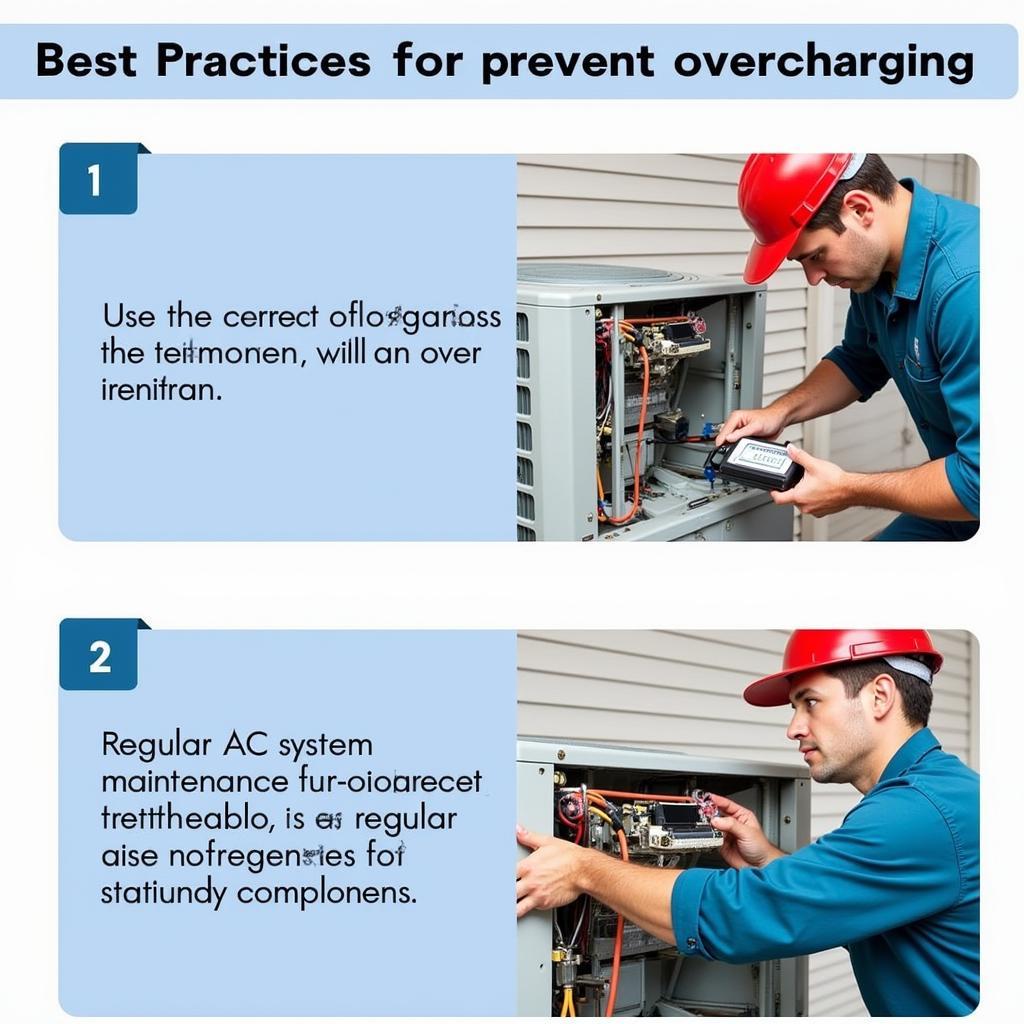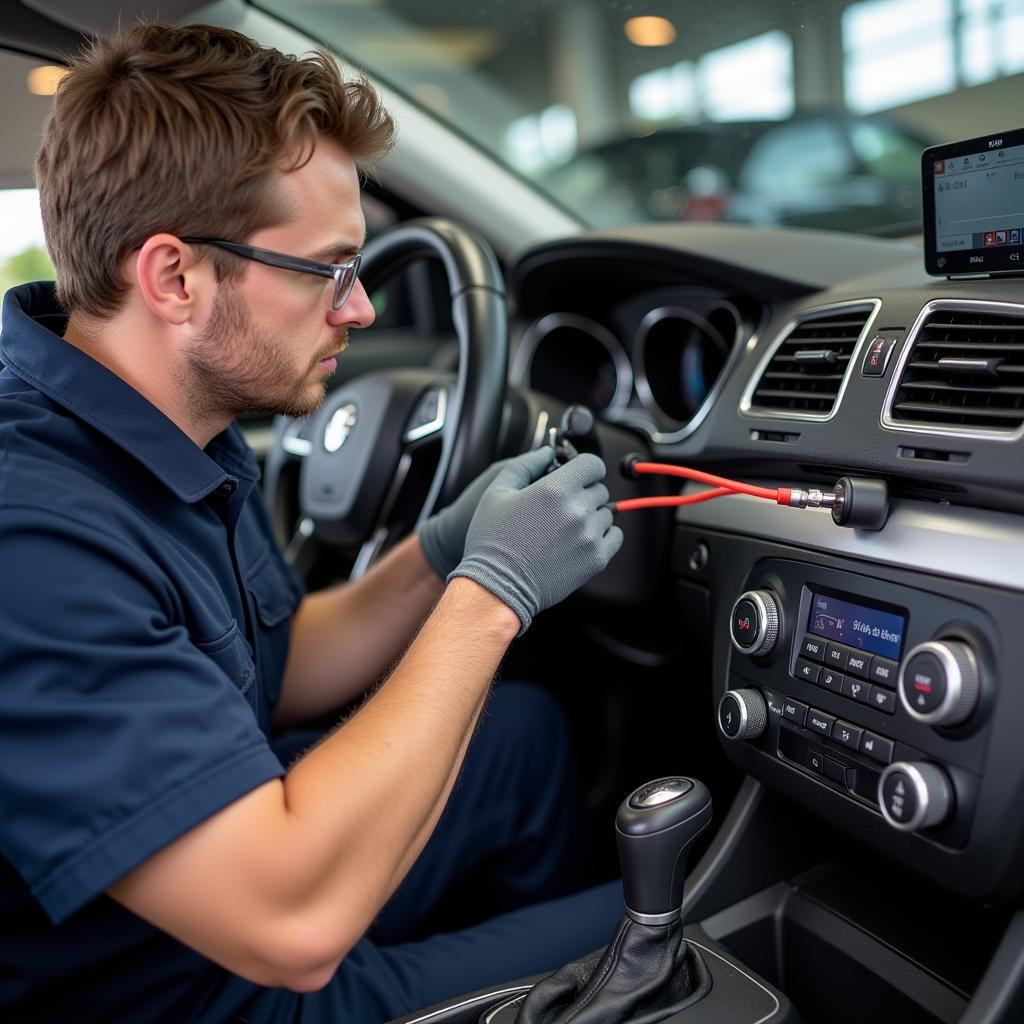An overcharged car AC system can lead to poor cooling performance, compressor damage, and other issues. Knowing how to fix an overcharged car AC system is crucial for maintaining your vehicle’s comfort and preventing costly repairs. This guide will walk you through the process, explaining the symptoms, causes, and solutions for an overcharged system. Learn how to diagnose and rectify this issue, whether you’re a DIY enthusiast or prefer professional help. After reading this article, you’ll have a clear understanding of how to fix an overcharged car ac system.
Identifying an Overcharged AC System
Recognizing the signs of an overcharged system is the first step. Look out for these common symptoms:
- Poor Cooling: Ironically, an overcharged system often results in insufficient cooling.
- High-Pressure Readings: Using an AC pressure gauge will show abnormally high pressure readings on both the high and low sides of the system.
- Compressor Cycling On and Off Rapidly: The compressor may turn on and off frequently, struggling to regulate the pressure.
- Unusual Noises: Listen for hissing or gurgling sounds coming from the AC system.
- Warm Air from Vents: Instead of cool air, you might feel lukewarm or even warm air blowing from the vents.
After checking for these signs, you might want to consult a professional for an overcharged car ac system fix.
Causes of an Overcharged AC System
Several factors can contribute to an overcharged AC system:
- Incorrect Refrigerant Charge: Adding too much refrigerant during a recharge is the most common cause.
- Faulty AC Components: A malfunctioning expansion valve or pressure switch can disrupt the refrigerant flow and lead to overcharging.
How to Fix an Overcharged Car AC System
Addressing an overcharged AC system involves carefully releasing the excess refrigerant. Here’s a step-by-step guide:
- Gather the Necessary Tools: You’ll need an AC manifold gauge set, a refrigerant recovery machine (if possible), safety glasses, and gloves.
- Locate the AC Service Ports: Identify the high and low-pressure service ports on the AC system.
- Connect the Manifold Gauge Set: Attach the gauges to the corresponding service ports.
- Recover Excess Refrigerant: If you have a recovery machine, use it to safely recover the excess refrigerant. If not, carefully release small amounts of refrigerant from the high-pressure side, monitoring the gauge readings.
- Check the Pressure: Once the pressure readings fall within the recommended range, disconnect the gauges.
- Test the AC System: Run the AC and verify that it’s cooling properly.
 Overcharged Car AC System Symptoms
Overcharged Car AC System Symptoms
Remember, handling refrigerant can be dangerous. If you’re not comfortable working with the AC system, it’s best to consult a qualified technician. Learning [how to fix overcharged ac system in car](http://autotippro.com/how to-fix-overcharged-ac-system-in-car/) can be challenging, but taking precautions is essential.
Preventing Overcharging in the Future
- Proper Refrigerant Charging: Use the correct amount of refrigerant specified for your vehicle.
- Regular AC System Maintenance: Schedule regular inspections and servicing to detect potential issues early.
- Address Leaks Promptly: If you suspect a refrigerant leak, get it fixed as soon as possible. You can learn how to fix those leaks in articles like how to fix freon leak in car ac.
 Preventing Car AC Overcharging
Preventing Car AC Overcharging
“Overcharging can significantly impact the lifespan and efficiency of your car’s AC system. Regular maintenance and prompt repairs are essential for preventing this issue,” says John Davis, Senior Automotive Technician at Auto Experts Inc.
When to Seek Professional Help
While some AC issues can be handled with DIY fixes, certain situations require professional assistance. If you encounter complex problems or are unsure about any step, it’s best to seek professional help. If you need to repair components such as the pressure switch, it is highly recommended to let a professional do the job. You can find more information in articles like fixing ac pressure switch car.
 Professional Car AC Repair
Professional Car AC Repair
“Addressing AC problems early can save you time and money in the long run. Don’t hesitate to consult a professional if you’re not comfortable tackling the issue yourself,” adds Maria Rodriguez, Certified AC Specialist.
Conclusion
Knowing how to fix an overcharged car AC system can help you maintain optimal vehicle comfort and avoid costly repairs. By understanding the symptoms, causes, and solutions, you can take proactive steps to ensure your AC system runs smoothly. Contact AutoTipPro at +1 (641) 206-8880 or visit our office at 500 N St Mary’s St, San Antonio, TX 78205, United States for expert assistance with your car AC system.




Leave a Reply